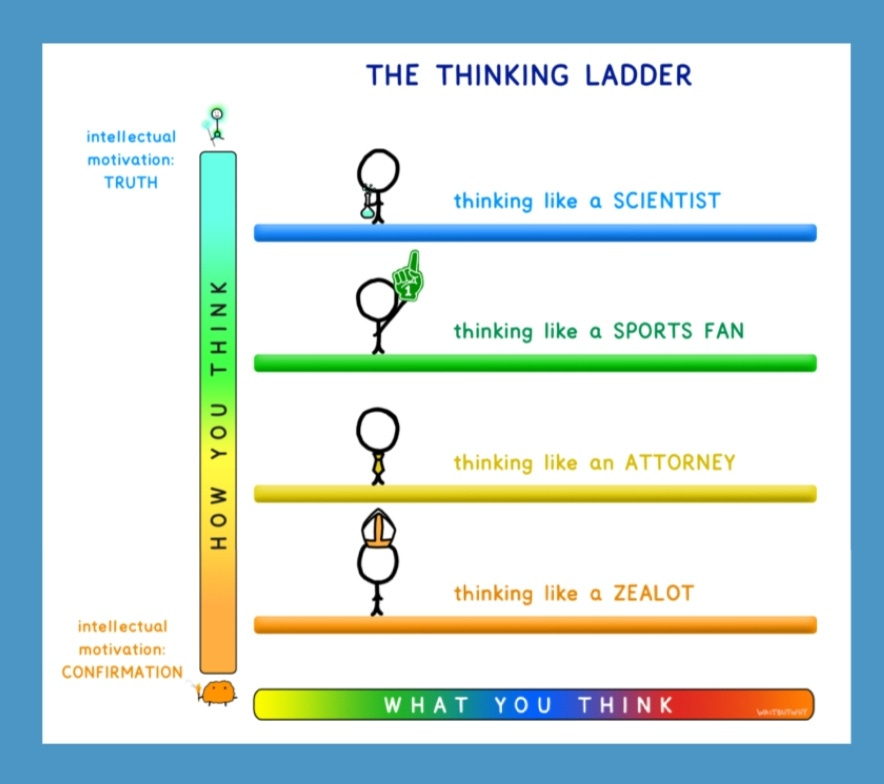Learn why failure in your running journey is just data when looked at objectively (like a scientist) without emotions and what you do with this data is where the magic lies.
“So if we want to think like a scientist more often in life, these are the three key objectives—to be humbler about what we know, more confident about what’s possible, and less afraid of things that don’t matter.”
Frameworks, lenses and models
I love frameworks, lenses and models. What are they? Well, let’s go to good ol’ Wikipedia/Chat GPT to run it through the metaphor of running so we all understand. (BTW - Chat GPT DID NOT write anything except the below, I promise. Kinda crazy that people have to say this now like “no really, I did this myself” but no one actually cares because everyone copied Google search results before Chat GPT).
“A framework is like a roadmap that provides a clear structure and direction for running better, outlining the key components and steps needed to achieve your goal. A lens is like a pair of glasses that helps you see your running performance more clearly by highlighting specific aspects or metrics that are important to track and improve.
A model is like a coach who can analyze your performance data, identify areas for improvement, and provide guidance on how to optimize your running technique and training regimen.”
Why am I talking about these organizational principles and how does this help your running/life goals?
Because if you pick the right principle (framework/lens/model) it becomes a secret cheat code as it’s applicable to so many different things in your training, racing and life.
1. Failure is just a data point
Stop looking at failure as a negative. Data is a great thing. We need more of this in our lives when we make so many emotional decisions. I’m not saying emotion is bad or good, I’m just saying having logic and data along with your feelings gives you a super wholistic view to make much better decisions.
I challenge you to be scientific and neutral or even look at it with a hint of optimism.
This leads me to my next point: You need more data/information to do anything. Like making choices, and actions, dedicating resources like money/time/energy, etc.
2. Many failures give you data
The more failures you have the more data points you get which in return yield more data and information.
We now have a much bigger picture of what’s going on. Way more dots!
It’s like in Wordle: You need to guess (and most likely fail) what the letter is. The more failure you have the closer you get to what the actual word is.
3. Data informs your future decisions
Most choices you make are usually based on the information and data that you have at hand. Emotions, resources (money/time/energy), and other things factor into it but you need some amount and form of information to make a future decision.
Quick Breather
While this post is a very brief theory on an extremely complex topic, I thought that I would shine a bit more light on where the whole “thinking like a scientist” mo
del comes from.
Below are two illustrations by one of the greatest (and funniest) social thinkers of our internet times, Tim Urban/Wait But Why. It’s about how the thinking like a scientist approach compares to other thinking models. So yes, this is a model inside of a framework… I’m meta like that.
4. Informed decisions give you experience and time
Once you make a decision, you must act on it to make it happen. With this action, you gain experience and time in the game, which helps you become more successful.
5. Experience + time = wisdom
I’m keeping it super simple with this equation. If you have more experience and time doing something, you will gain positive insights into what to do next.
You become an expert because you’ve done the thing a bunch and spent the time on it.
And experts are usually wise.
(Side note - The definition of “wise” is a bit all over the place and differs by culture and generation. So I’ll take this definition from Wikipedia.
“Wisdom is knowing things that help a person to live sensibly and make good decisions.”
6. Wise people make better choices
With more experience and time doing something, you will have a higher chance of success. This is like a probability game, where you have gained lots of experience and knowledge from both your successes and failures.
This experience allows you to make better decisions quickly, sometimes 2, 5, or even 10 times faster than before. Plus, you can use this wisdom to help others in similar situations. Finally, you can keep doing this over and over: Eat, Sleep, Run, Repeat.
Summing this all up
Alright, that was a bit heady but it’s worth it (at least I think) to wrap your head around the concept that failure is good.
It’s not easy to do and it’s also counterintuitive thinking since we are biologically wired to disproportionally weigh fear over happiness.
Becoming an expert in any field requires spending time and effort, and the insights gained from that experience can help not only ourselves but also others who may find themselves in similar situations. As we continue to make informed decisions, we can become experts in our respective fields, and ultimately achieve success.
When faced with failure, don't despair; use it to gain experience and inform your choices, increasing your chances of success. And the beauty of all of this is that it applies to any situation, such as running, starting a new project, or even having a difficult convo in your personal or work life.
Train Smart - Run Easy,
Daren







